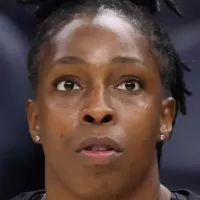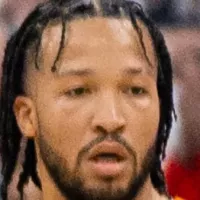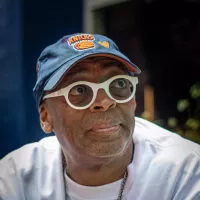The Harry Potter series, penned by J.K. Rowling, follows the life of young wizard Harry Potter and his friends Ron Weasley and Hermione Granger at Hogwarts School of Witchcraft and Wizardry. The central narrative revolves around Harry's struggle against Lord Voldemort, a dark wizard seeking immortality and dominance over the wizarding world and Muggles. The series explores themes of good versus evil, friendship, love, and prejudice within a richly imagined magical universe.
1964: Billboard and The Beatles
In 2004, Time suggested that, on the same principle as The New York Times splitting children's best-seller list, Billboard should have created a separate list in 1964 when The Beatles held the top five places in its list.
1986: Rowling graduates from University of Exeter with degree in French Literature
In 1986, J.K. Rowling graduated from the University of Exeter with a degree in French literature, after which she spent a year living in France. Her education influenced some of the themes in the Potter Stories.
1990: Rowling gets the idea for Harry Potter
In 1990, J.K. Rowling conceived the idea for Harry Potter while on a crowded train from Manchester to London, marking the inception of the globally successful series.
1990: Completion of the final book's epilogue
J.K. Rowling has stated that the last chapter of the final book (in fact, the epilogue) was completed "in something like 1990".
1995: Rowling completes Harry Potter and the Philosopher's Stone
In 1995, J.K. Rowling completed the manuscript for Harry Potter and the Philosopher's Stone and sent it off to several prospective agents.

June 1997: Release of Harry Potter and the Philosopher's Stone
In June 1997, the first novel in the series, Harry Potter and the Philosopher's Stone, was released, marking the beginning of the series' immense popularity and commercial success worldwide.

June 1997: Publication of Harry Potter and the Philosopher's Stone in the UK
On June 26, 1997, Harry Potter and the Philosopher's Stone was published by Bloomsbury in the United Kingdom, marking the debut of the series.

1997: Awards for Harry Potter and the Philosopher's Stone
In 1997, Harry Potter and the Philosopher's Stone won almost all the United Kingdom awards judged by children, but none of the children's book awards judged by adults.

1997: Awards for Harry Potter series
In 1997, the Harry Potter series received a commendation for the Carnegie Medal and the Nestlé Smarties Book Prize.
September 1998: Publication of Harry Potter and the Sorcerer's Stone in the US
In September 1998, Harry Potter and the Sorcerer's Stone was published in the United States by Scholastic, after the American rights sold for US$105,000. Scholastic feared that American readers would not associate the word "philosopher" with magic, and Rowling suggested the title Harry Potter and the Sorcerer's Stone for the American market.
1998: Awards for Harry Potter and the Philosopher's Stone
From 1997 to 1998, Harry Potter and the Philosopher's Stone won almost all the United Kingdom awards judged by children, but none of the children's book awards judged by adults.

1998: Guardian Children's Award nomination
In 1998, Harry Potter series was short listed for the Guardian Children's Award.
July 1999: Publication of Harry Potter and the Prisoner of Azkaban in the UK
In July 1999, Harry Potter and the Prisoner of Azkaban was published in the UK, continuing the series.
September 1999: Publication of Harry Potter and the Prisoner of Azkaban in the US
In September 1999, Harry Potter and the Prisoner of Azkaban was published in the US, a year after its UK release.
1999: Whitbread Book of the Year award controversy
In 1999, Harry Potter and the Prisoner of Azkaban was nominated for the Whitbread Book of the Year award children's division and was entered for the first time on the shortlist for the main award. One judge threatened to resign if it won, and the book finished second to Seamus Heaney's translation of Beowulf.
1999: Film rights sold to Warner Bros.
In 1999, J.K. Rowling sold the film rights for Harry Potter to Warner Bros. for a reported £1 million (US$2,000,000). Rowling retained creative control and insisted on a British and Irish principal cast.
1999: Anthony Holden judges Harry Potter and the Prisoner of Azkaban for the Whitbread Awards
In 1999, critic Anthony Holden judged Harry Potter and the Prisoner of Azkaban for the Whitbread Awards and expressed a negative view of the series.
1999: Awards for Harry Potter series
In 1999, the Harry Potter series received the Nestlé Smarties Book Prizes, two Scottish Arts Council Book Awards and the inaugural Whitbread children's book of the year award.
June 2000: The New York Times creates a separate best-seller list for children's literature
In June 2000, The New York Times created a separate best-seller list for children's literature due to the high demand for Harry Potter novels, just before the release of Harry Potter and the Goblet of Fire. By June 24, 2000, Rowling's novels had been on the list for 79 straight weeks.
July 2000: Publication of Harry Potter and the Goblet of Fire
In July 2000, Harry Potter and the Goblet of Fire was published simultaneously by Bloomsbury and Scholastic.
2000: Harry Potter and the Prisoner of Azkaban nominated for Hugo Award
In 2000, Harry Potter and the Prisoner of Azkaban was nominated for a Hugo Award for Best Novel.
2000: Harry Potter tops The New York Times best-seller list
In 2000, before the publication of Harry Potter and the Goblet of Fire, the first three Harry Potter books topped The New York Times fiction best-seller list, leading the newspaper to create a new children's section.
2000: Bookstore events coincide with midnight release
In 2000, bookstores began holding events for the midnight release of Harry Potter books, starting with Harry Potter and the Goblet of Fire. These events featured activities and entertainment, attracting fans and boosting book sales.
November 2001: Release of Harry Potter and the Philosopher's Stone
Harry Potter and the Philosopher's Stone was released on 14 November 2001.
2001: Series lands on American Library Association's Top 10 Banned Book List
In 2001, the Harry Potter series landed on the American Library Associations' Top 10 Banned Book List due to claims of being anti-family, discussing magic and witchcraft, containing actual spells and curses, referencing the occult/Satanism, violence, and characters who used "nefarious means" to attain goals, as well as conflicts with religious viewpoints.
2001: Awards for Harry Potter series
In 2001, the Harry Potter series received a platinum award from the Whitaker Gold and Platinum Book Awards and the Scottish Arts Council Book Awards.
November 2002: Release of Harry Potter and the Chamber of Secrets
Harry Potter and the Chamber of Secrets was released on 15 November 2002.
November 2002: Chris Suellentrop likens Potter to a "trust-fund kid"
In November 2002, Chris Suellentrop likened Potter to a "trust-fund kid whose success at school is largely attributable to the gifts his friends and relatives lavish upon him".
2002: Harry Potter as a British pop culture icon
In 2002, sociologist Andrew Blake named Harry Potter a British pop culture icon along with the likes of James Bond and Sherlock Holmes.
2002: Series lands on American Library Association's Top 10 Banned Book List
In 2002, the Harry Potter series landed on the American Library Associations' Top 10 Banned Book List due to claims of being anti-family, discussing magic and witchcraft, containing actual spells and curses, referencing the occult/Satanism, violence, and characters who used "nefarious means" to attain goals, as well as conflicts with religious viewpoints.
June 2003: Worldwide Publication of Harry Potter and the Order of the Phoenix
On June 21, 2003, Harry Potter and the Order of the Phoenix, the longest book in the series, was published worldwide in English.
2003: Platform 9 3/4 sign at King's Cross
In 2003, a sign marking Platform 9 3/4 was put up at the London King's Cross railway station.
2003: Books named in BBC's The Big Read survey
In 2003, four of the Harry Potter books were named in the top 24 of the BBC's The Big Read survey of the best loved novels in the UK.
2003: Shooting of Harry Potter and the Prisoner of Azkaban
In 2003, shooting for Harry Potter and the Prisoner of Azkaban took place.
2003: Placement in BBC's "Big Read" survey
In 2003, the BBC's "Big Read" survey of the UK's favourite books ranked Philip Pullman and J.K. Rowling at numbers 3 and 5, respectively, reflecting a shift in reading tastes toward plot and adventure.
2003: Series lands on American Library Association's Top 10 Banned Book List
In 2003, the Harry Potter series landed on the American Library Associations' Top 10 Banned Book List due to claims of being anti-family, discussing magic and witchcraft, containing actual spells and curses, referencing the occult/Satanism, violence, and characters who used "nefarious means" to attain goals, as well as conflicts with religious viewpoints.
2003: "Muggle" enters Oxford English Dictionary
In 2003, the word "Muggle" entered the Oxford English Dictionary, demonstrating the cultural impact of the Harry Potter series.
June 2004: Release of Harry Potter and the Prisoner of Azkaban
Harry Potter and the Prisoner of Azkaban was released on 4 June 2004.
2004: The New York Times splits children's best-seller list
In 2004, The New York Times split its children's best-seller list into series and individual books due to the Harry Potter books dominating the section for individual books.
2004: Books read aloud in elementary schools
In 2004, a study found that books in the Harry Potter series were commonly read aloud in elementary schools in San Diego County, California.
July 2005: Publication of Harry Potter and the Half-Blood Prince
In July 2005, Harry Potter and the Half-Blood Prince, the sixth book in the series, was published.
November 2005: Release of Harry Potter and the Goblet of Fire
Harry Potter and the Goblet of Fire was released on 18 November 2005.
2005: Real-life Quidditch created
In 2005, a real-life version of the sport Quidditch was created, inspired by the Harry Potter books.
2005: Trolley added to Platform 9 3/4
In 2005, a trolley fixed to the wall was added to the Platform 9 3/4 installation at the London King's Cross railway station.
January 2006: Production for Harry Potter and the Order of the Phoenix began
In January 2006, Production began for Harry Potter and the Order of the Phoenix.
2006: WHSmith book of the year
In 2006, the Harry Potter series received the WHSmith book of the year award.
March 2007: Harry Potter is the most searched fan fiction subject
In March 2007, "Harry Potter" was the most commonly searched fan fiction subject on the internet.
April 2007: Barnes & Noble declares pre-order record for Deathly Hallows
On April 12, 2007, Barnes & Noble declared that Harry Potter and the Deathly Hallows had broken its pre-order record, with more than 500,000 copies pre-ordered through its site.
July 2007: Release of Harry Potter and the Order of the Phoenix
Harry Potter and the Order of the Phoenix was released in July 2007.
July 2007: Publication of Harry Potter and the Deathly Hallows
In July 2007, Harry Potter and the Deathly Hallows, the seventh and final novel in the series, was published.
July 2007: Ron Charles criticizes the cultural and marketing "hysteria" of the later books
In July 2007, The Washington Post book critic Ron Charles opined that the cultural and marketing "hysteria" marked by the publication of the later books trains children and adults to expect the roar of the coliseum, a mass-media experience that no other novel can possibly provide.
August 2007: Christopher Hitchens praises Rowling for "unmooring" her "English school story"
In August 2007, Christopher Hitchens praised Rowling for "unmooring" her "English school story" from literary precedents.
2007: Series listed in Teachers' Top 100 Books for Children
Based on a 2007 online poll, the US National Education Association listed the Harry Potter series in its "Teachers' Top 100 Books for Children". Time magazine named Rowling as a runner-up for its 2007 Person of the Year award.
2007: Harry Potter book covers on UK postage stamps
In 2007, the seven Harry Potter book covers were depicted on a series of UK postage stamps issued by Royal Mail.
July 2009: Release of Harry Potter and the Half-Blood Prince
Harry Potter and the Half-Blood Prince was released on 15 July 2009.
2009: Travelling exhibition premiered in Chicago
In 2009, a Harry Potter travelling exhibition premiered in Chicago, marking an expansion of the franchise beyond books and films.
November 2010: Release of Harry Potter and the Deathly Hallows – Part 1
Harry Potter and the Deathly Hallows – Part 1 was released on 19 November 2010.
July 2011: Release of Harry Potter and the Deathly Hallows – Part 2
Harry Potter and the Deathly Hallows – Part 2 was released on 15 July 2011.
2012: Release of digital editions on Pottermore
In 2012, J.K. Rowling retained the rights to digital editions and released them on the Pottermore website, giving Pottermore control over pricing.
2012: Harry Potter-themed shop opened nearby
In 2012, a Harry Potter-themed shop opened near Platform 9 3/4 at the London King's Cross railway station.
2012: Studio tour opened in London
In 2012, a studio tour based on Harry Potter opened in London, adding to the franchise's attractions.
2012: Lord Voldemort featured in London Olympics opening ceremony
In 2012, the opening ceremony of the 2012 Summer Olympics in London featured a 100-foot tall rendition of Lord Voldemort in a segment designed to showcase the UK's cultural icons.
2012: Quidditch featured in London Olympics
In 2012, the real-life version of Quidditch was featured as an exhibition tournament in the London Olympics.
2012: Books placed among the "Top 100 Chapter Books"
In 2012, three Harry Potter books placed among the "Top 100 Chapter Books" of all time in a survey published by School Library Journal.
2013: Prince Charles visited the Platform 9 3/4
In 2013, Prince Charles visited the Platform 9 3/4 installation at the London King's Cross railway station.
2014: Bloomsbury announces launch of "Harry Potter Book Night"
In 2014, British book publisher Bloomsbury announced the launch of "Harry Potter Book Night" and associated promotional events.
February 2015: First Harry Potter Book Night
In February 2015, the first "Harry Potter Book Night" was held by Bloomsbury.
2015: "Back to Hogwarts Day" gains prominence
Starting in 2015, September 1st, the day Harry Potter generally started school at Hogwarts, gained more prominence as "Back to Hogwarts Day", especially after J.K. Rowling suggested it was the year Harry Potter would be sending his own children to Hogwarts.
June 2016: Premiere of Harry Potter and the Cursed Child
Harry Potter and the Cursed Child: Parts I and II had its official premiere on 30 June 2016 at the Palace Theatre in London's West End, following previews that began on 7 June 2016. Tickets for the first four months sold out rapidly.
November 2016: Premiere of Fantastic Beasts and Where to Find Them
In November 2016, the first film in the Fantastic Beasts spin-off trilogy, Fantastic Beasts and Where to Find Them, premiered, further expanding the Harry Potter universe.
2016: Rowling acknowledges date error
In 2016, J.K. Rowling acknowledged that she was wrong by a year regarding the King's Cross events in the Harry Potter epilogue.
2016: Article compares the politics of Harry Potter to the 2016 Donald Trump presidential campaign
In 2016, an article written by Diana C. Mutz compared the politics of Harry Potter to the 2016 Donald Trump presidential campaign.
2016: Harry Potter franchise estimated at $25 billion
In 2016, the total value of the Harry Potter franchise was estimated at $25 billion, solidifying its position as one of the highest-grossing media franchises of all time.
2017: Warner Bros. Interactive Entertainment opened Portkey Games design studio
In 2017, Warner Bros. Interactive Entertainment opened its own Harry Potter-themed game design studio, by the name of Portkey Games.
November 2018: Revenue from book sales estimated at $7.7 billion
As of November 2018, the total revenue from Harry Potter book sales is estimated to be around $7.7 billion.
November 2018: Release of Fantastic Beasts: The Crimes of Grindelwald
In November 2018, the second film in the prequel series, Fantastic Beasts: The Crimes of Grindelwald, was released.
2018: Release of Hogwarts Mystery
In 2018, Hogwarts Mystery, developed by Jam City, was released.
November 2019: Harry Potter series listed on BBC's list of 100 most influential novels
In November 2019, the BBC listed the Harry Potter series on its list of the 100 most influential novels.
2019: Series lands on American Library Association's Top 10 Banned Book List
In 2019, the Harry Potter series landed on the American Library Associations' Top 10 Banned Book List due to claims of being anti-family, discussing magic and witchcraft, containing actual spells and curses, referencing the occult/Satanism, violence, and characters who used "nefarious means" to attain goals, as well as conflicts with religious viewpoints.
April 2022: Release of Fantastic Beasts: The Secrets of Dumbledore
In April 2022, the third film in the prequel series, Fantastic Beasts: The Secrets of Dumbledore, was released.
November 2022: Audiobook series reaches over a billion hours listened
As of November 2022, the Harry Potter audiobook series has been listened to for over a billion hours on Audible.
February 2023: Book sales reach 600 million copies worldwide
As of February 2023, the Harry Potter books have sold more than 600 million copies worldwide, becoming the best-selling book series in history.
2023: "Harry Potter Book Day"
In 2023, "Harry Potter Book Night" was rebranded to "Harry Potter Book Day" and moved to October.
2023: Release of Hogwarts Legacy
In 2023, Hogwarts Legacy, developed by Avalanche Software, was released.
2024: Fans booed no Hogwarts Express announcement
On September 1, 2024, fans showed up at King's Cross Station for "Back to Hogwarts Day" despite discouragement and booed when no Hogwarts Express announcement was made, with in-person events being held elsewhere.
Mentioned in this timeline

Donald John Trump is an American politician media personality and...
Home Box Office HBO is an American pay television service...
California is a U S state on the Pacific Coast...
The Guardian is a British daily newspaper founded in as...
Japan is an East Asian island country located in the...

News encompasses information about current events disseminated through various media...
Trending

37 minutes ago Chelsea Gray Defeats Paige Bueckers in Unrivaled Tournament; Bueckers Reacts to Loss

37 minutes ago Jalen Brunson Praises Knicks Fan Favorite After Trade Deadline Acquisitions

38 minutes ago Shapovalov Advances to Dallas Open Semifinals, Shelton Match Predicted.

38 minutes ago Spike Lee celebrates 'School Daze' 38th anniversary with Atlanta reunion reflection.
Allisha Gray is an American professional basketball player currently playing for the Atlanta Dream in the WNBA She is most...

2 hours ago Devin Booker embraces Mexican roots, shines with Dillon Brooks, All-Star awaits.
Popular

Kid Rock born Robert James Ritchie is an American musician...

Pam Bondi is an American attorney lobbyist and politician currently...
The Winter Olympic Games a major international multi-sport event held...
Randall Adam Fine is an American politician a Republican who...

Barack Obama the th U S President - was the...

XXXTentacion born Jahseh Dwayne Ricardo Onfroy was a controversial yet...






